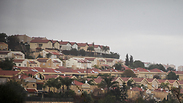Overlooking the scenic Jezreel Valley some 50 miles from Tel Aviv, Yokneam stands at the crossroads of two major highways in northern Israel. Although not a major urban area, the city is transforming into one of the country’s fastest-growing tech hubs thanks to generous government tax breaks, special grants and a high overall quality of life.
While Tel Aviv is widely considered the heart of Israel’s high-tech industry—often ranked near the top of various world listings for its dynamic start-up scene—Yokneam’s reputation as a center for innovation is rapidly growing. Among the roughly 160 tech companies based there, several have recently nabbed prestigious international grants and awards.
“Yokneam has a very high percentage of companies involved in long-term research,” says Tzvi Ben Elya, Coordinator of Startup Village Yokneam, adding that the medical and pharmaceutical industries have especially benefited from the tax structure in place. “Part of it has to do with the fact that this is a family-oriented area and so people come and they choose to stay. The city has a high quality of life and the school systems are among the best in the country.”
According to Ben Elya, some 8,000 people are currently employed by tech companies in the city.
Initially, many American companies were investing in the area, he said, “but in the last few years, there has been a lot of Chinese investment. When (Chinese investors) come in, they usually take the production (back with them), but the research and development here grows.”
Among those developments is a revolutionary Israeli device that allows quadriplegics to navigate all kinds of indoor and outdoor terrain, either seated or upright.
Developed by UPnRIDE Robotics Ltd., the specialized wheelchair is designed for people who have lost mobility in all four limbs. Dr. Amit Goffer—himself a quadriplegic—is the creator the device, having come up with the idea after inventing ReWalk, a bionic exoskeleton designed to enable paraplegics to stand, walk, and climb stairs. Dr. Goffer could not, however, use ReWalk because his hands are partially paralyzed and so, in 2014, he founded a company to develop a next-generation mobility enhancer: UPnRIDE.
“These (devices) are fantastic for quadriplegics, especially to be able to communicate at eye level because it is very difficult and awkward as an adult to be at the height of a child,” said Dr. Goffer, President of UPnRIDE. “I think that when in a wheelchair, there’s an issue with (maintaining one’s) self-esteem and dignity. It’s perhaps even the number one problem.”
Dr. Goffer highlighted that the product is beneficial for people suffering from multiple sclerosis, cerebral palsy and other mobility-limiting diseases. The machine also reduces the number of health issues associated with remaining seated for long periods of time in a standard wheelchair, such as pressure sores.
UPnRIDE is in the process of manufacturing its first batch of commercial products. Concurrently, the technology is undergoing clinical trials in Israel and the United States and has already obtained clearance to be sold across Europe.
And it is not the only groundbreaking product to emerge from Yokneam. HemoScreen—developed by PixCell Medical Technologies Ltd.—is a portable medical device that could revolutionize the way that medicine is practiced.
“It performs the world’s most common blood test, which is the complete blood count (CBC) within five minutes,” said Dr. Avishay Bransky, CEO and Director of PixCell Medical. “So imagine that when you go to the doctor you’ll get your blood work done and when you go into the physician’s office he’ll be able to diagnose and treat you in a single visit.”
A HemoScreen unit—which is roughly the size of a lunchbox—can also be used to detect allergies, anemia and even cancer, among other afflictions, and has already undergone several clinical studies in the U.S. It also has received clearance to be sold throughout Europe. Founded almost nine years ago, PixCell Medical recently won a $3 million award from the European Union’s prestigious Horizon 2020 research program. The corporation is now focused on increasing production to commercially-viable levels.
“We just finished the clinical trials towards FDA clearance so it was a very long period of research and development,” Dr. Bransky affirmed, noting the device could be particularly helpful in intensive care units.
For PixCell, Yokneam was a natural fit because the city offers companies ample space and funding needed for the long-term development of medical devices like HemoScreen. “Most of the employees here live in the northern part of Israel so it’s very convenient for them to come work in Yokneam, rather than getting stuck in the traffic jams towards Tel Aviv and central Israel,” Dr. Bransky expounded.
Altogether, the city exports roughly $6 billion worth of technology products annually, according to the Yokneam Start-up Village website, demonstrating how a once-small town with big dreams has transformed into Israel’s leading alternative hi-tech hub.


















